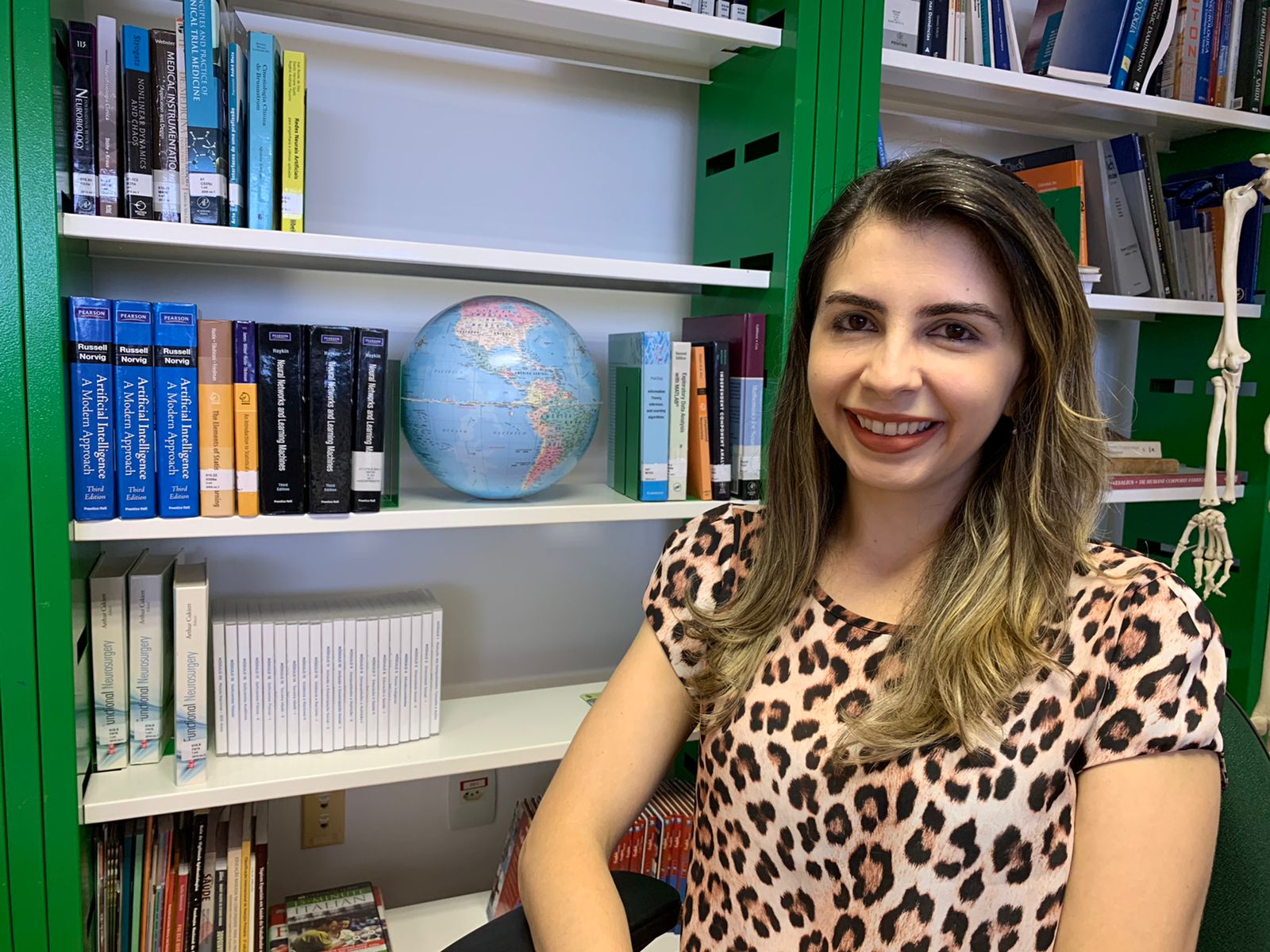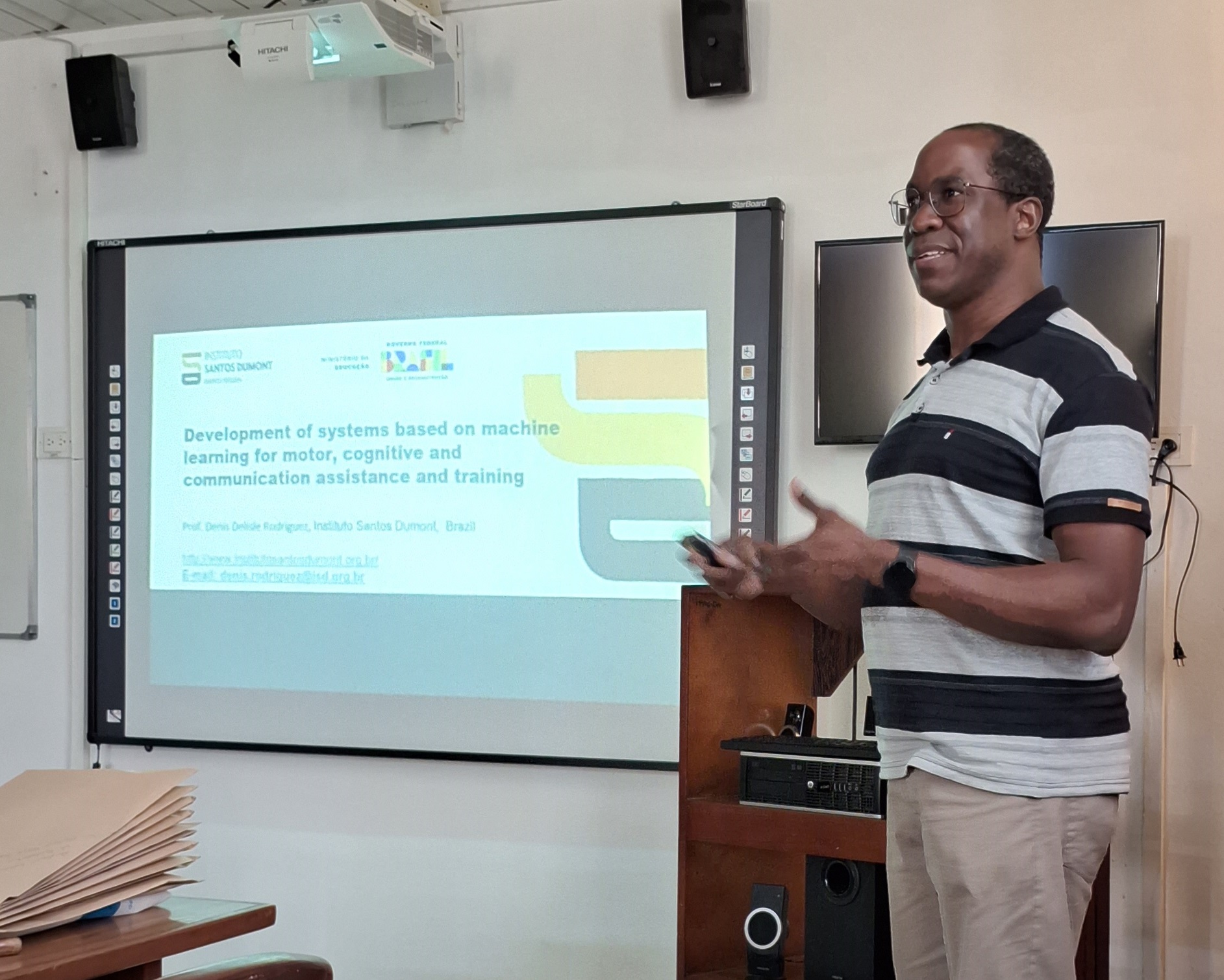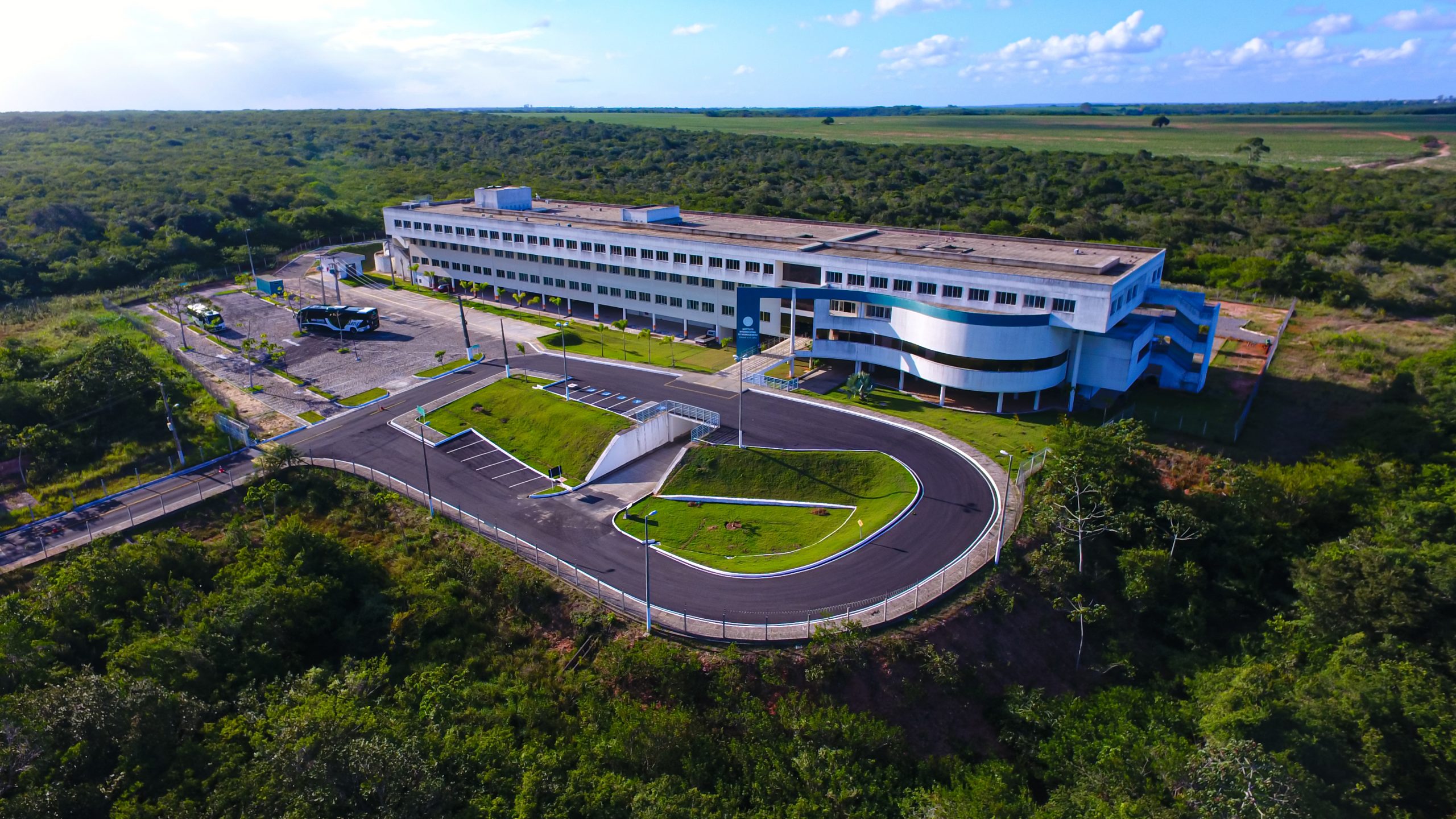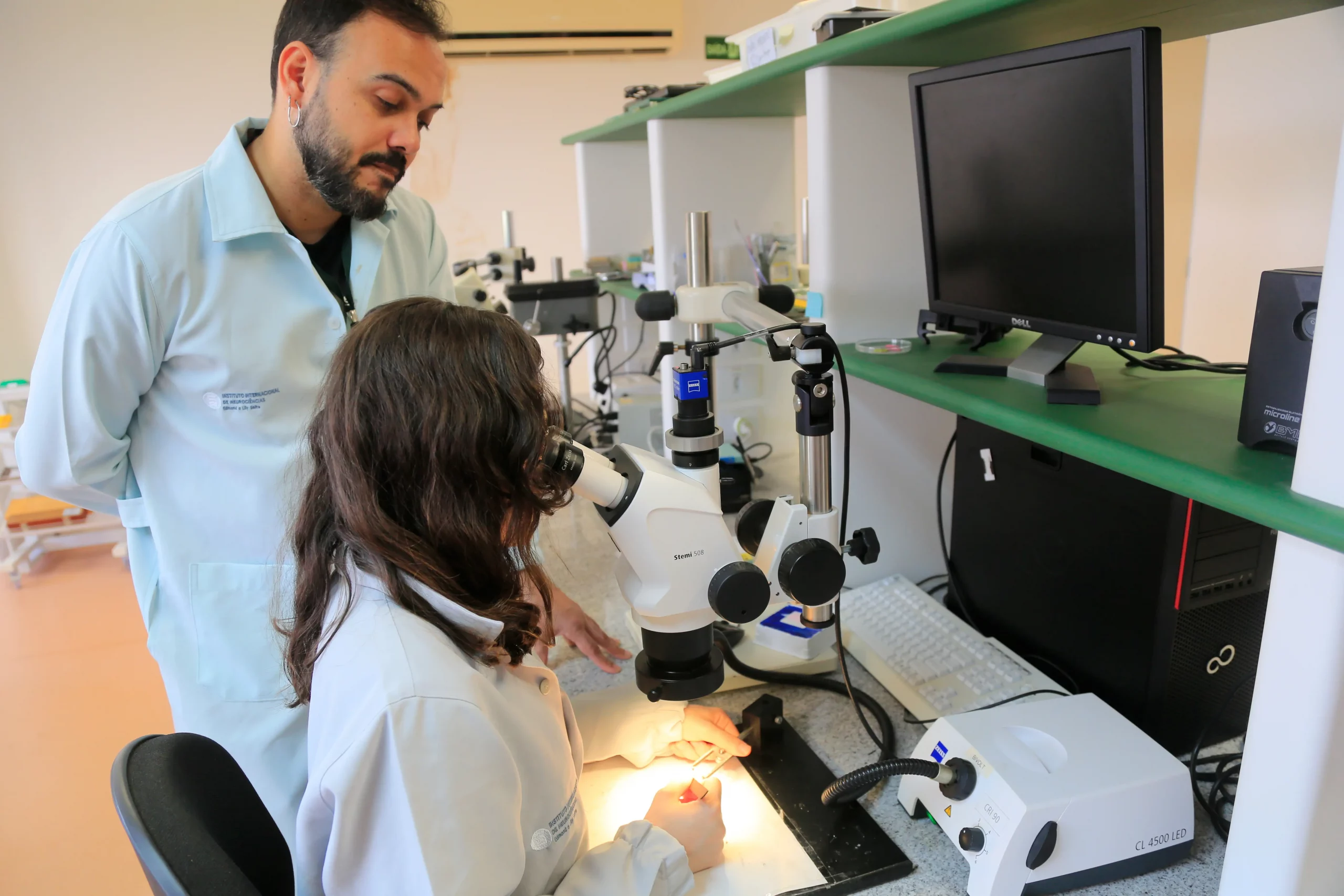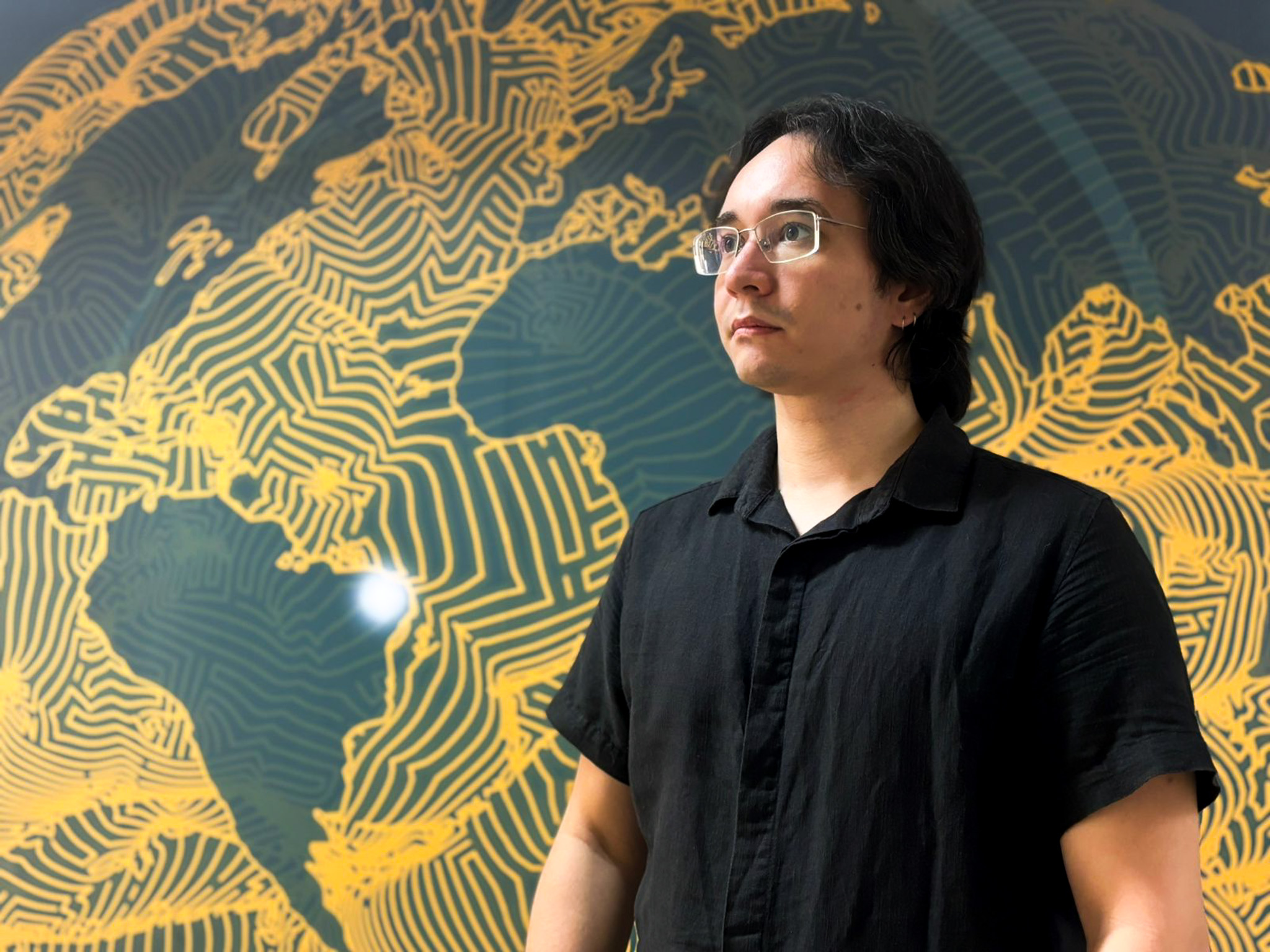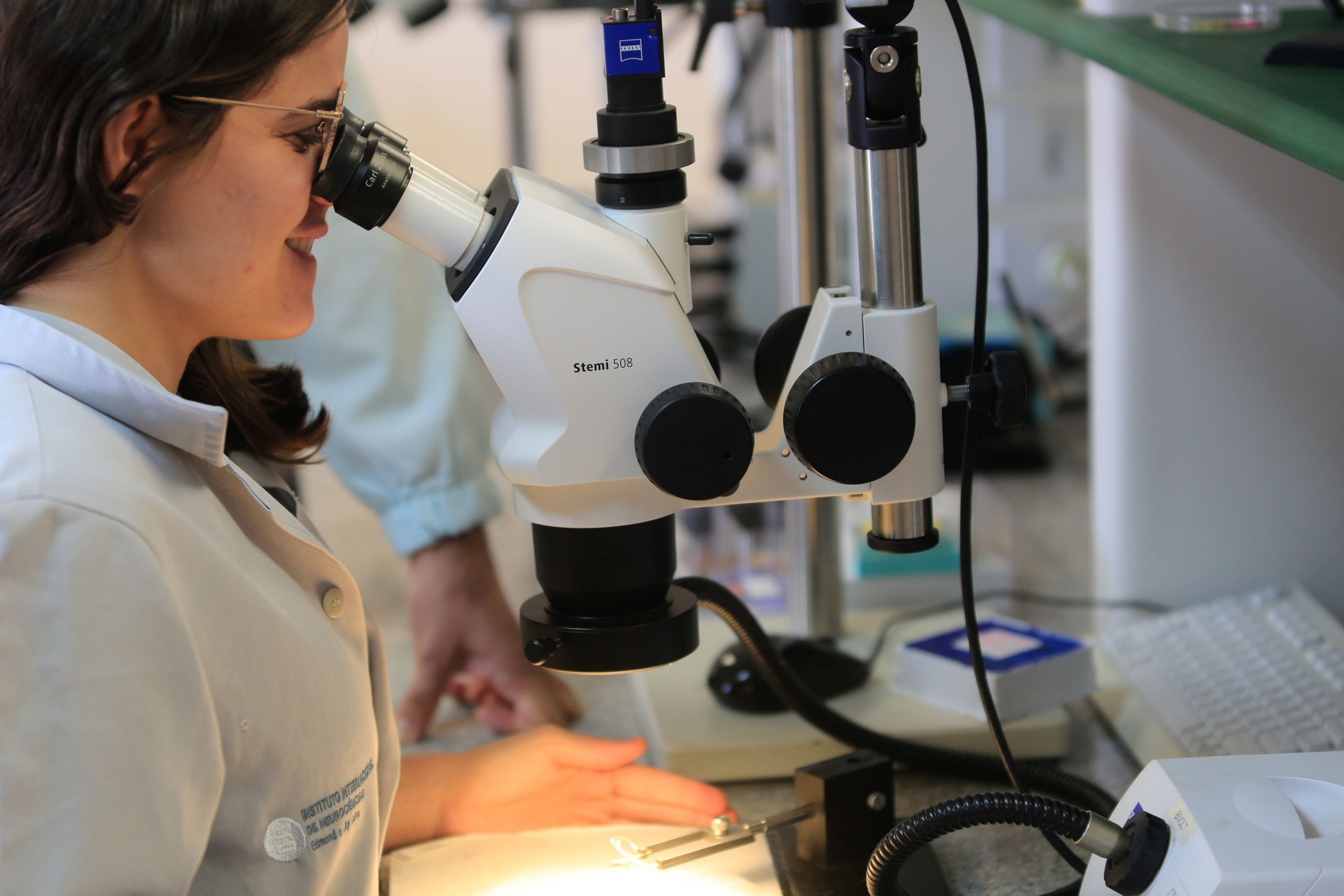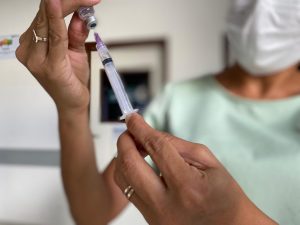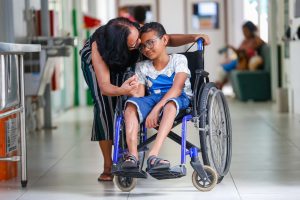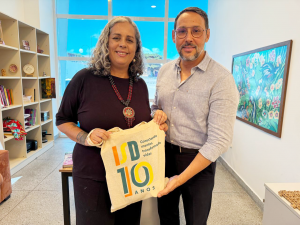Leveraging technological advances in health care without compromising the patient's quality of life: this was one of Gilberto Martins' motivations during his scientific career. Graduated in materials engineering from the Federal University of Rio Grande do Norte (UFRN), the interest in science arose during graduation. Even though he went through the industry in his first professional experiences, he did not abandon this inclination, which led him to the master's degree in neuroengineering at the Santos Dumont Institute (ISD), where he was able to put into practice an innovative and multidisciplinary work.
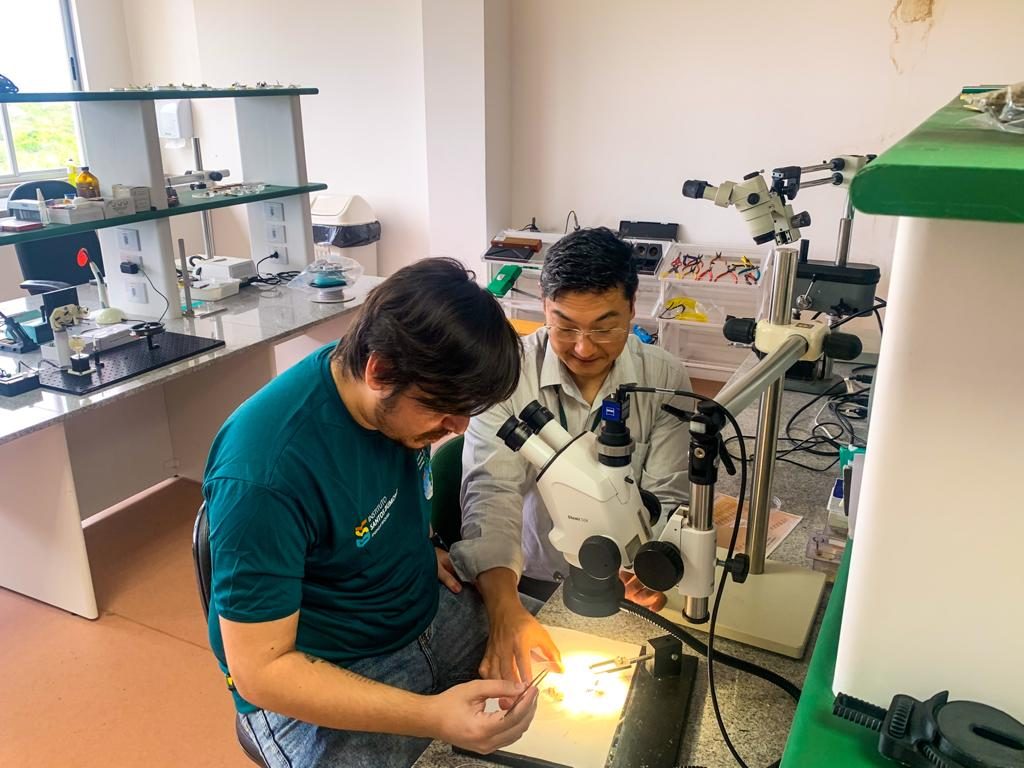
Martins is one of the three masters in Neuroengineering trained by ISD who were accepted in the first half of 2023 in research programs abroad. After two years developing a new type of flexible and more biocompatible electrode during his master's degree, the neuroengineer is ready to move to the city of Storrs, in the United States, where he will do his doctorate at the University of Connecticut, in Professor Yi's laboratory. Zhang. Gilberto will act as a researcher and assistant professor at the University, in addition to being able to work on his own research, with the ultimate goal of boosting the development of the electrode created at the ISD.
Immersed in the areas of biomedicine and biocompatibility, Gilberto reinforces that the perspective is to establish the electrode as an instrument capable of preserving the quality of life. The proposal is to prevent the person who is having the electrode implanted from having to periodically undergo the surgical procedure for removing and inserting a new electrode, avoiding costs and possible consequences to health.
“All the steps developed in the ISD made me able to apply for these opportunities. I practically went through all the existing technologies here, which was very good, because it enriched my knowledge. Now, I can work on both the design of equipment and the analysis of brain tissue, for example”, points out the neuroengineer.
Gilberto is one of the three Masters in Neuroengineering from ISD to have recently entered international universities and laboratories. Physical therapist Ledycnarf Holanda and speech therapist Nancy Sotero will also have the opportunity to take their research and scientific innovations outside Brazil.
Technology to rehabilitate
The translational aspect is widely present in research developed at ISD. Basic research with clinical application, the development of assistive technologies and the use of the Brain-Machine Interface in rehabilitation processes are examples of how science focused on health is present at the Institute.

For Ledycnarf Januário de Holanda, rehabilitation was a centralized ideal from an early age. Born in Mossoro, he graduated in physiotherapy from the Potiguar University (UnP) in his city and, since then, has deepened his knowledge and training with a focus on improving people's quality of life.
After a specialization in trauma-orthopedic and sports physiotherapy, Holanda had his first contact with the ISD, at the beginning of the Institute, working with the rehabilitation of users with chronic complete spinal cord injury. From there, he engaged in a master's degree in Neuroengineering in 2017, and a doctorate in physiotherapy that he concluded at UFRN, in 2019.
During the master's degree, the physiotherapist learned about programming and development of technologies applied to health, developing an auditory biofeedback system for postural control. In his doctorate, he decided to deepen this knowledge and evaluated and compared the movement of the upper limbs of healthy people and people with Amyotrophic Lateral Sclerosis, using machine learning algorithms, work that can improve control strategies for upper limb orthoses and functional evaluation.
Now, he is embarking on yet another challenge with a post-doctorate at the Bloorview Research Institute, at the University of Toronto, Canada, where he will work alongside researcher Tom Chau in the development of robotic devices for gait rehabilitation of children with cerebral palsy. The physiotherapist sees her entire trajectory as connected points, which lead her to a single goal: to innovate technology and health care.
“Everything I learned at the Santos Dumont Institute represents a watershed for me, it defined what I like to do today in terms of research and as a professional. What I did in my master's degree, in my doctorate and now the post-doctoral opportunity are connected. What I intend to do is associate what I learned in the research area to continue improving and learning more”, says the physiotherapist.
Research for clinical practice
The association between neuroengineering and health care also marked the formation of Nancy Sotero Silva. A speech therapist from the Federal University of Paraíba (UFPB), Sotero became a specialist in the health care of people with disabilities through the ISD in 2021 and, in the same year, entered the institution's master's degree in neuroengineering.
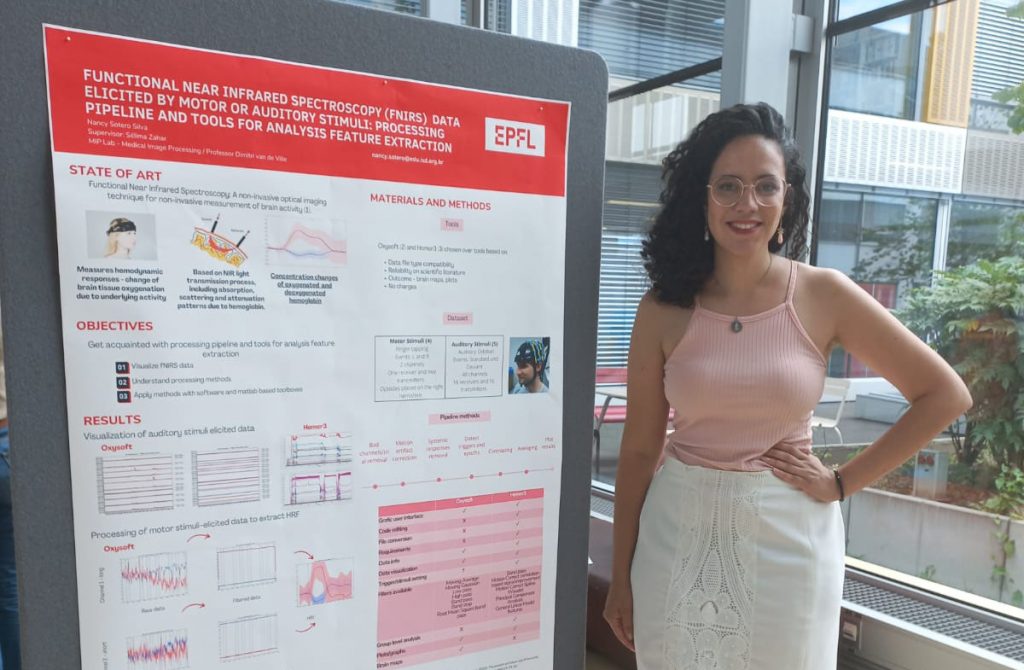
During her master's degree, Nancy sought to understand brain activity during auditory processing from the recording of sensory stimuli, with the aim of establishing a standard protocol that can be applied to people with or without hearing loss.
With the goal of furthering studies and scientific advances in the field of hearing, Nancy enrolls in her doctorate at Bielefeld University, in Germany. There, he will work investigating mechanisms of cognition related to hearing and its associations with attention and other sensory processes.
“The master's degree in neuroengineering made it possible for me to have contact and training with innovative techniques, which are not commonly used in speech therapy, or which we could not have access to during graduation. Through the projects I participated in during my residency and master's degree, I had the freedom to investigate the use of these tools for auditory rehabilitation”, explains Nancy.
The decision to seek the opportunity for a doctorate came when neuroengineering noticed the possibilities of expanding its experiences, qualifications and academic training, incorporating the research it would carry out into the construction of a professional bond. From there, he began to look for research groups that would develop projects in their areas of activity, in order to be able to continue what he had been working on and put into practice the study and development of innovative methods.
For Nancy, scientific research has its relevance based on technologies and means that reach the user. Therefore, the neuroengineer works mainly with a focus on establishing which tools have the potential to be implemented in the Unified Health System (SUS), as well as to be validated as evaluation and rehabilitation instruments that can be used by speech therapists and exposed since graduation, such as Electroencephalography (EEG), fNIRS, neuromodulation, eye tracking technique (eyetracking), between others.
Text: Naomi Lamarck / Ascom – ISD
Photograph: Mariana Ceci / Ascom – ISD
Communication Office
comunicacao@isd.org.br
(84) 99416-1880
Santos Dumont Institute (ISD)
It is a Social Organization linked to the Ministry of Education (MEC) and includes the Edmond and Lily Safra International Institute of Neurosciences and the Anita Garibaldi Health Education and Research Center, both in Macaíba. ISD's mission is to promote education for life, forming citizens through integrated teaching, research and extension actions, in addition to contributing to a fairer and more humane transformation of Brazilian social reality.

